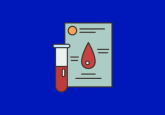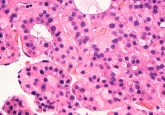Blood biomarkers and genomic data combined to predict disease risk

Researchers have announced how blood biomarkers and genomic data could be combined to predict an individual’s risk of developing certain diseases. The team shared their findings at the European Society of Human Genetics (10–13 June; Scotland, UK), which described how the combined approach is more accurate and cost-effective compared to utilizing genomic data alone.
In the study, researchers measured over 200 biomarkers in blood samples from 300,000 participants in the UK Biobank and 200,000 participants in the Estonian biobank. Jeffrey Barrett, the Chief Scientific Officer at Nightingale Health (Helsinki, Finland) who conducted the research, commented:
“This is the biggest dataset of its kind that has ever been collected. We found that in all the diseases, both genetics and biomarkers could provide useful information about disease risk, even 10 years into the future. The blood biomarkers provided better prediction in nearly all cases.”
Barrett and his colleagues utilized genomic data and biomarkers as a basis for building machine learning models that predict future risks of disease development. The model included the following diseases: ischemic heart disease, stroke, lung cancer, diabetes, chronic obstructive pulmonary disease, Alzheimer’s, depression, liver disease and colon cancer.
The research highlighted that blood biomarkers were especially predictive of disease risk in the next 2–4 years. It is hoped that healthcare systems could use blood tests to confirm which individuals would benefit from preventative treatments. Barrett concluded:
“It means that it is relatively easy to find the individuals at greatest risk of many diseases and offer them ways to reduce their risk, keeping them healthier and at the same time reducing the financial burden on healthcare systems.”






